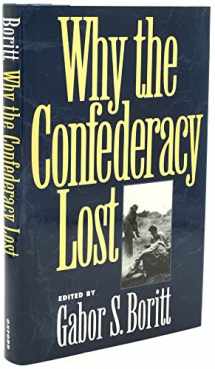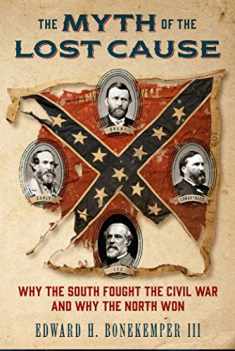
Why the Confederacy Lost (Gettysburg Civil War Institute Books)
Book details
Summary
Description
After the Civil War, someone asked General Pickett why the Battle of Gettysburg had been lost: Was it Lee's error in taking the offensive, the tardiness of Ewell and Early, or Longstreet's hesitation in attacking? Pickett scratched his head and replied, "I've always thought the Yankees had something to do with it." This simple fact, writes James McPherson, has escaped a generation of historians who have looked to faulty morale, population, economics, and dissent as the causes of Confederate failure. These were all factors, he writes, but the Civil War was still a war--won by the Union army through key victories at key moments.
With this brilliant review of how historians have explained the Southern defeat, McPherson opens a fascinating account by several leading historians of how the Union broke the Confederate rebellion. In every chapter, the military struggle takes center stage, as the authors reveal how battlefield decisions shaped the very forces that many scholars (putting the cart before the horse) claim determined the outcome of the war. Archer Jones examines the strategy of the two sides, showing how each had to match its military planning to political necessity. Lee raided north of the Potomac with one eye on European recognition and the other on Northern puplic opinion--but his inevitable retreats looked like failure to the Southern public. The North, however, developed a strategy of deep raids that was extremely effective because it served a valuable political as well as military purpose, shattering Southern morale by tearing up the interior. Gary Gallagher takes a hard look at the role of generals, narrowing his focus to the crucial triumvirate of Lee, Grant, and Sherman, who towered above the others. Lee's aggressiveness may have been costly, but he well knew the political impact of his spectacular victories; Grant and Sherman, meanwhile, were the first Union generals to fully harness Northern resources and carry out coordinated campaigns. Reid Mitchell shows how the Union's advantage in numbers was enhanced by a dedication and perseverance of federal troops that was not matched by the Confederates after their home front began to collapse. And Joseph Glatthaar examines black troops, whose role is entering the realm of national myth.
In 1960, there appeared a collection of essays by major historians, entitled Why the North Won the Civil War, edited by David Donald; it is now in its twenty-sixth printing, having sold well over 100,000 copies. Why the Confederacy Lost provides a parallel volume, written by today's leading authorities. Provocatively argued and engagingly written, this work reminds us that the hard-won triumph of the North was far from inevitable.


We would LOVE it if you could help us and other readers by reviewing the book
Book review




